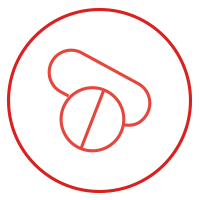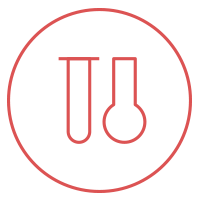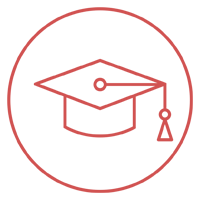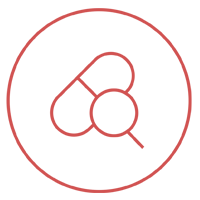我们要求对美国反兴奋剂机构掩盖兴奋剂违规案件开展独立调查
2024-08-08
近期,我们注意到国外媒体揭露的美国反兴奋剂机构(USADA)掩盖美国运动员兴奋剂违规并允许他们参加比赛的严重错误做法。世界反兴奋剂机构(WADA)在随后发表的公开声明中指出,2011年以来,USADA至少在三起案件中,对使用类固醇和促红素(EPO)的运动员免予指控和处罚,允许他们充当所谓的卧底线人,继续参加比赛并直到退役。USADA长期掩盖这一做法,在长达十年的时间里都未曾通知WADA,直到2021年才被制止。
USADA的做法,严重违反了《世界反兴奋剂条例》及其自身制定的规则,严重损害了体育运动的公平竞争和干净运动员的权益,表明其开展的反兴奋剂工作严重缺乏透明度。美方这种对自身长久以来的反兴奋剂“陋习”视而不见,却试图越界管辖别国的“双标”行为,也让国际社会看清了其“贼喊捉贼”“双重标准”的真面目。该机构负责人在回答媒体提问时公然声称,这种掩盖行为是解决更大、更系统性问题的有效方法。但该做法实际上是假借卧底线人之名,行掩盖之实,这一表态不仅暴露出该机构负责人的专横傲慢和对国际规则的蔑视,而且进一步证实了美国体育运动中存在的大规模、有组织、系统性使用兴奋剂的严重问题。
我们强烈呼吁美国国会、USADA理事会正视美国自身存在的严重兴奋剂问题,正视USADA自身存在的严重治理缺陷,加强对USADA的监管和约束,加大本国反兴奋剂工作力度,立即停止“长臂管辖”和粗暴干涉其他国家反兴奋剂工作的恶劣行径。
我们强烈呼吁对USADA严重违反《世界反兴奋剂条例》的掩盖行为开展独立调查。USADA应立即公布所涉及的案件细节,回应媒体和公众对其自身问题的关切,切实履行其声明中多次承诺坚持的透明原则。
附:世界反兴奋剂机构关于路透社揭露美国反兴奋剂机构违反《世界反兴奋剂条例》的声明(中译文)
2024年8月7日,路透社发布报道,揭露了美国反兴奋剂机构(以下简称USADA)多年来一直允许使用兴奋剂的运动员参加比赛的行为,而这些违反反兴奋剂规则的行为却从未受到公布或处罚。这直接违反了《世界反兴奋剂条例》(以下简称《条例》)和USADA自身的规定,世界反兴奋剂机构(以下简称WADA)对此做出回应。
《条例》致力于保护体育比赛的公平性,而USADA的这一做法明显违反了相关规定,威胁到了体育竞赛的公正性。与USADA的说法相反,WADA并没有允许这种让药物作弊者继续参加比赛以获取他人罪证的做法。
《条例》中有一项规定表明,如果运动员能够向反兴奋剂组织提供切实协助,使得反兴奋剂组织发现另一当事人的兴奋剂违规,则其部分禁赛期能够得到暂缓。但是,该项规定有明确的程序,并不允许使用兴奋剂的运动员以获取他人的违规证据为由继续参加比赛。在此类行为存在多年以后,WADA终于在2021年发现其违规之处,并立刻命令USADA停止该行为。
现在,WADA已经发现至少三起此类案件,相关运动员们多年来一直在严重违反反兴奋剂规定的情况下参加比赛,充当着USADA的卧底线人。相关信息并未告知WADA,《条例》以及USADA自身的规定中也没有任何一项允许此类行为。
一位曾经参加奥运会资格赛和众多国际赛事的美国精英级运动员承认服用了类固醇和促红素,却没有遭到禁赛,并一直参加比赛直到退役。此案从未公布,比赛结果从未取消,奖金从未退回,禁赛也从未实施。该运动员像从未作弊过一样参加比赛。当USADA最终向WADA承认此案时,USADA表示无论是公布结果还是取消成绩都会将该运动员的生命安全置于危险境地,并要求WADA不要公开。在这种两难的情况下,WADA别无选择,只能同意。此前,WADA情报和调查部门核实了所谓安全威胁的可信度。因此,该运动员的兴奋剂违规情况从未公之于众。
此外,USADA在取消一位高水平运动员的临时禁赛决定前,并未按照《条例》要求告知WADA,这种行为是可以上诉的。如果WADA知晓,绝对不会允许此事发生。
如果那些公平竞争的运动员们知道自己的对手在作弊,而且是在USADA允许的情况下作弊的,他们会作何感想?当USADA因怀疑其他反兴奋剂组织没有严格遵守规定而大喊大叫时,自己却在多年间不公布兴奋剂案件,允许作弊者继续比赛,只是因为他们有可能帮助抓到其他违规者,这真是讽刺和虚伪。WADA不禁要问,管理USADA的USADA理事会以及为其提供资金的美国国会是否知道这种不合规的做法,这种做法不仅破坏了体育竞赛的公正性,而且还危及合作运动员的安全。
Call for an Independent Investigation into USADA’s Cover-Up of Anti-Doping Rule Violations in the Disguise of Undercover Informants
China Anti-Doping Agency (CHINADA) noted that the serious wrongdoing by the United States Anti-Doping Agency (USADA) in covering up anti-doping rule violations of some athletes it has caught and letting them keep on competing has been revealed by the media. In a subsequent statement, the World Anti-Doping Agency (WADA) pointed out that since 2011, there have been at least three cases where athletes who had taken steroids and erythropoietins (EPO) were not charged and sanctioned by USADA and were allowed to continue to compete for years until their retirement while they acted as the so-called undercover agents for USADA. This practice has long been covered up by USADA, who hadn’t informed WADA until 2021 when WADA immediately instructed it to desist.
Such practice of USADA constitutes a serious violation of the World Anti-Doping Code (the Code) and its own rules, causes severe damage to the rights and interests of clean athletes and to the fair play principle in sport, and shows a profound lack of transparency in USADA’s anti-doping work. The fact that the U.S. has turned a blind eye to its long history of doping problems while trying to cross the border and exercise jurisdiction over other countries has just clearly exposed to the international community its trick of a thief crying “stop the thief” and the double standards behind its logic. When responding to media concerns, the CEO of USADA said blatantly that their practice is an effective way to get at these bigger, systemic problems. However, the scheme is, in effect, a cover-up of anti-doping rule violations under the guise of undercover informants. This statement reveals the arrogance of the USADA CEO and his contempt for international rules. Moreover, it has further added evidence to the larger-scale, organized, and systemic doping problem in U.S. sports.
We strongly call on the U.S. Congress and the USADA Board of Directors to face up to the grave problem of doping in the U.S. itself and the serious governance flaw in USADA. What they should do is to tighten supervision and regulation on USADA, strengthen anti-doping measures in their own country, and stop their despicable attempts of “long-arm jurisdiction” and gross meddling in the work of anti-doping organizations in other countries.
We also strongly call for an independent investigation into USADA for seriously violating the Code by covering up anti-doping rule violations. USADA should immediately disclose the details in relevant cases and respond to the concerns about its own problems from the media and the general public, and truly implement the principle of transparency to which it has repeatedly claimed to have adhered in its statements.
Annex:WADA statement on Reuters story exposing USADA scheme in contravention of World Anti-Doping Code
The World Anti-Doping Agency (WADA) responds to a Reuters story of 7 August 2024 exposing a scheme whereby the U.S. Anti-Doping Agency (USADA) allowed athletes who had doped, to compete for years, in at least one case without ever publishing or sanctioning their anti-doping rule violations, in direct contravention of the World Anti-Doping Code and USADA’s own rules.
This USADA scheme threatened the integrity of sporting competition, which the Code seeks to protect. By operating it, USADA was in clear breach of the rules. Contrary to the claims made by USADA, WADA did not sign off on this practice of permitting drug cheats to compete for years on the promise that they would try to obtain incriminating evidence against others.
Within the Code there is a provision whereby an athlete who provides substantial assistance can subsequently apply to have a proportion of their period of ineligibility suspended. However, there is a clear process for that, which does not involve allowing those who have cheated to continue to compete while they may or may not gather incriminating evidence against others and while they could retain a performance-enhancement effect from the substances they took. When WADA eventually found out about this non-compliant practice in 2021, many years after it had started, it immediately instructed USADA to desist.
WADA is now aware of at least three cases where athletes who had committed serious anti-doping rule violations were allowed to continue to compete for years while they acted as undercover agents for USADA, without it notifying WADA and without there being any provision allowing such a practice under the Code or USADA’s own rules.
In one case, an elite level athlete, who competed at Olympic qualifier and international events in the United States, admitted to taking steroids and EPO yet was permitted to continue competing all the way up to retirement. Their case was never published, results never disqualified, prize money never returned, and no suspension ever served. The athlete was allowed to line up against their unknowing competitors as if they had never cheated. In that case, when USADA eventually admitted to WADA what had been going on, it advised that any publication of consequences or disqualification of results would put the athlete’s security at risk and asked WADA to agree to non-publication. Being put in this impossible position, WADA had no choice but to agree (after verifying with its Intelligence and Investigations Department that the security threat was credible). The athlete’s doping was therefore never made public.
In another case of a high-level athlete, USADA never notified WADA of its decision to lift an athlete’s provisional suspension, which is an appealable decision, despite being required to do so under the Code. Had WADA been notified, it would never have allowed this.
How must other athletes feel knowing they were competing in good faith against those who were known by USADA to have cheated? It is ironic and hypocritical that USADA cries foul when it suspects other Anti-Doping Organizations are not following the rules to the letter while it did not announce doping cases for years and allowed cheats to carry on competing, on the off chance they might help them catch other possible violators. WADA wonders if the USADA Board of Directors, which governs USADA, or U.S. Congress, which funds it, knew about this non-compliant practice that not only undermined the integrity of sporting competition but also put the co-operating athletes’ security at risk.











